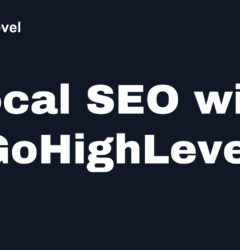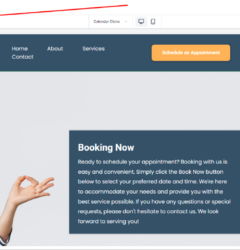Introduction to SEO Strategies
In the digital age, the visibility of your website in search engine results can be the difference between its success or obscurity. SEO, or Search Engine Optimization, is the art and science of enhancing your online presence, ensuring your site is more attractive to search engines like Google. The importance of SEO cannot be overstated, as it drives organic traffic, increases brand awareness, and builds credibility in your niche. This article delves into 10 proven SEO strategies that are essential for anyone looking to elevate their website’s status on the digital horizon.
Comprehensive Keyword Research
Tools and Techniques for Effective Keyword Research
Keyword research is the cornerstone of any successful SEO strategy. It involves identifying the terms and phrases your target audience uses to search for services or products similar to yours. Utilizing tools like Google Keyword Planner, SEMrush, and Ahrefs can provide insights into search volume, competition, and relevance. The key is to find a balance between high search volume and low competition, targeting both short-tail and long-tail keywords to capture a wide range of search intents.
Analyzing and Selecting the Right Keywords
Once you’ve gathered a list of potential keywords, the next step is to analyze and select the most effective ones for your strategy. Consider factors such as relevance to your content, search volume, and keyword difficulty. Prioritizing keywords that closely match your audience’s search intent can dramatically improve your site’s visibility and attract more qualified traffic.
On-Page SEO Optimization
Crafting Quality Content
Quality content is at the heart of on-page SEO. Creating informative, engaging, and valuable content not only satisfies your audience’s needs but also signals to search engines that your website is a credible source of information. Incorporate your targeted keywords naturally within your content, ensuring it reads well for your audience while also being optimized for search engines.
Optimizing Meta Tags and Descriptions
Meta tags and descriptions play a crucial role in on-page SEO. These elements provide search engines with concise summaries of your content, influencing how your pages are displayed in search results. A well-crafted meta title and description that include your targeted keywords can improve click-through rates and drive more traffic to your website.
URL Structure and Internal Linking Strategies
A clean, descriptive URL structure enhances user experience and helps search engines understand the hierarchy and relevance of your content. Incorporating keywords into your URLs can also boost your SEO efforts. Additionally, a strategic approach to internal linking can distribute page authority throughout your site, improving the overall SEO performance of individual pages.
Technical SEO for a Flawless Website
Improving Site Speed and Mobile Responsiveness
Site speed and mobile responsiveness are critical factors in both user experience and search engine ranking. A fast-loading, mobile-friendly website not only satisfies users but also aligns with Google’s mobile-first indexing policy. Implementing technical optimizations such as compressing images, leveraging browser caching, and optimizing CSS can significantly improve your site’s performance.
Secure Browsing: HTTPS as a Ranking Signal
Security is a top priority for both users and search engines. Migrating your website to HTTPS encrypts data between your site and its visitors, ensuring a secure browsing experience. Google has confirmed HTTPS as a ranking signal, making it an essential component of your technical SEO strategy.
High-Quality Link Building
Strategies for Acquiring Authoritative Backlinks
Backlinks, or inbound links from other websites, are a testament to the credibility and authority of your content. Acquiring high-quality backlinks from reputable sources can significantly boost your SEO efforts. Strategies such as guest blogging, creating shareable infographics, and participating in industry forums can help you earn valuable backlinks and enhance your website’s authority.
Guest Blogging and Content Marketing
Guest blogging and content marketing are effective ways to expand your online presence and acquire backlinks. By contributing high-quality content to other websites in your niche, you can tap into their audience, drive traffic back to your site, and build your brand’s credibility. Content marketing, through blogs, videos, and social media, can also attract natural backlinks as others share and cite your work.
Leveraging Social Media for SEO
Integrating Social Signals into Your SEO Strategy
While social signals may not directly influence search engine rankings, they can indirectly affect your SEO performance. A strong social media presence can increase your content’s visibility, leading to more shares, higher traffic, and the potential for backlinks. Engaging with your audience on social platforms can also enhance brand recognition and loyalty.
Maximizing Visibility and Engagement on Social Platforms
To maximize your visibility on social media, focus on creating shareable, engaging content that resonates with your audience. Use social media to promote your content, engage with followers, and participate in conversations related to your niche. This increased engagement can lead to more traffic to your website and improved SEO results.
Local SEO: Capturing Local Audiences
Optimizing for Google My Business
For businesses targeting local customers, optimizing for Google My Business (GMB) is essential. A well-optimized GMB listing can improve your visibility in local search results and Google Maps, driving more foot traffic to your location. Ensure your listing is complete, accurate, and includes high-quality images and customer reviews to stand out in local searches.
Building Local Citations and Reviews
Local citations and reviews are vital components of local SEO. Citations, or mentions of your business on other websites, help improve your visibility in local search results. Encouraging satisfied customers to leave positive reviews on platforms like Google My Business and Yelp can also boost your credibility and attract more local customers.
Voice Search Optimization: The Future of SEO
Adapting Your Content for Voice Search
With the rising popularity of voice-activated devices, optimizing for voice search is becoming increasingly important. Voice search queries are often longer and more conversational than text-based searches. Adapting your content to include long-tail keywords and conversational phrases can improve your visibility in voice search results.
Long-Tail Keywords and Conversational Phrases
Focusing on long-tail keywords and conversational phrases can capture the natural language used in voice searches. This approach not only improves your chances of appearing in voice search results but also makes your content more accessible and engaging for users conducting text searches.
Content is King: Creating Valuable Content
Understanding User Intent and Content Relevance
Understanding the intent behind users’ searches is crucial for creating content that meets their needs. Content should be tailored to answer questions, solve problems, or provide valuable information related to the user’s search intent. This relevance not only satisfies users but also signals to search engines that your content is valuable, improving your SEO performance.
Engaging and Retaining Your Audience
Engaging content goes beyond merely including keywords. It must capture the reader’s attention, provide real value, and encourage them to interact with your site further. Utilizing various content formats, such as videos, infographics, and interactive tools, can enhance user engagement and contribute to a positive SEO outcome https://www.hireva.co/.









What SEO Agencies Do? 7 Strategies to Boost Your Presence with Hire VA - Hire VA
[…] all keywords are created equal. SEO experts focus on high-value keywords that are relevant to your business, have a high search volume, […]
Boost Online Presence: SEO Tactics - Hire VA
[…] On-page SEO involves optimizing individual pages of your website to rank higher and attract more relevant traffic. Key on-page elements to focus on include: […]
binance
Thank you for your sharing. I am worried that I lack creative ideas. It is your article that makes me full of hope. Thank you. But, I have a question, can you help me?
创建Binance账户
Your article helped me a lot, is there any more related content? Thanks!